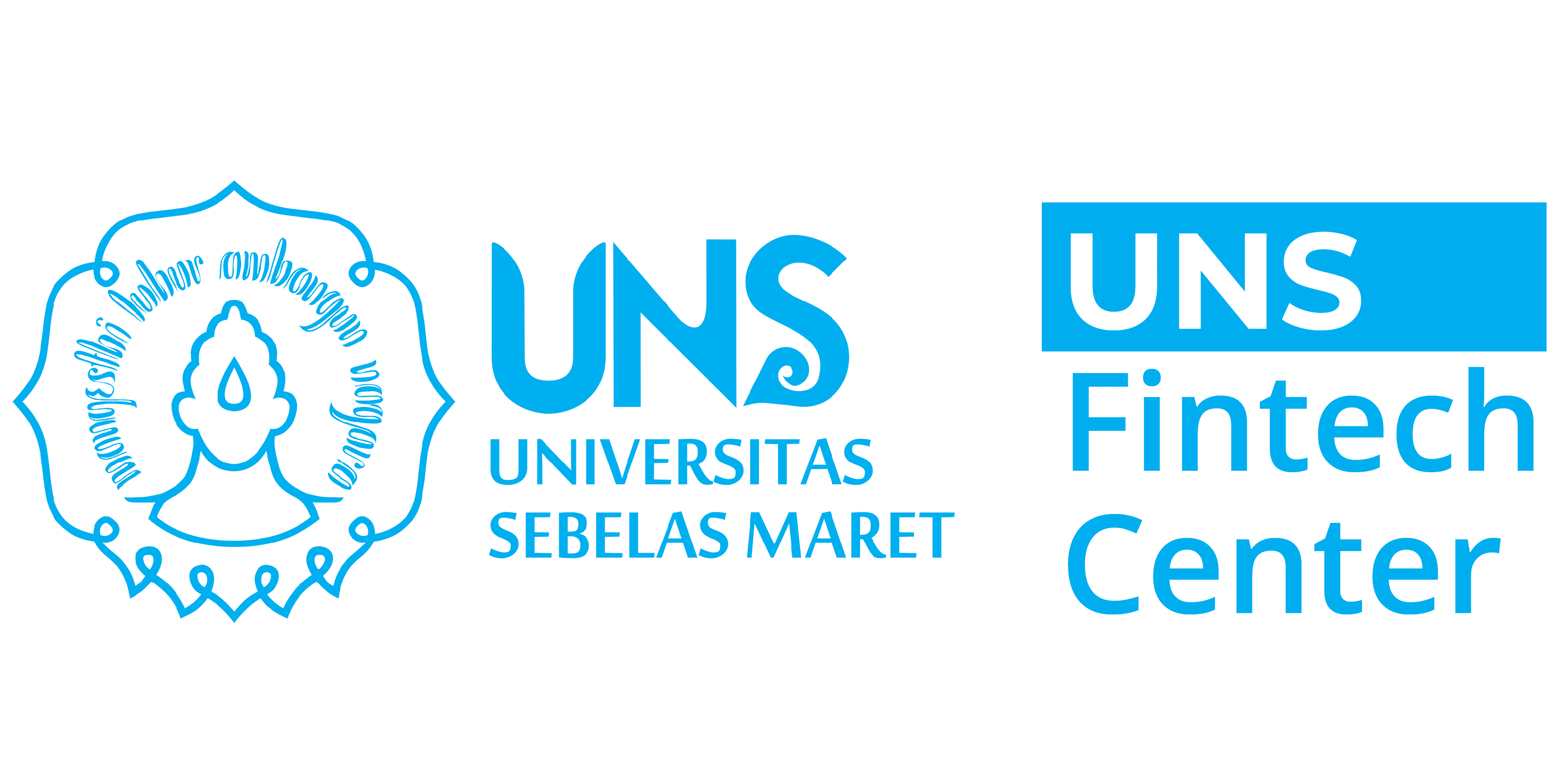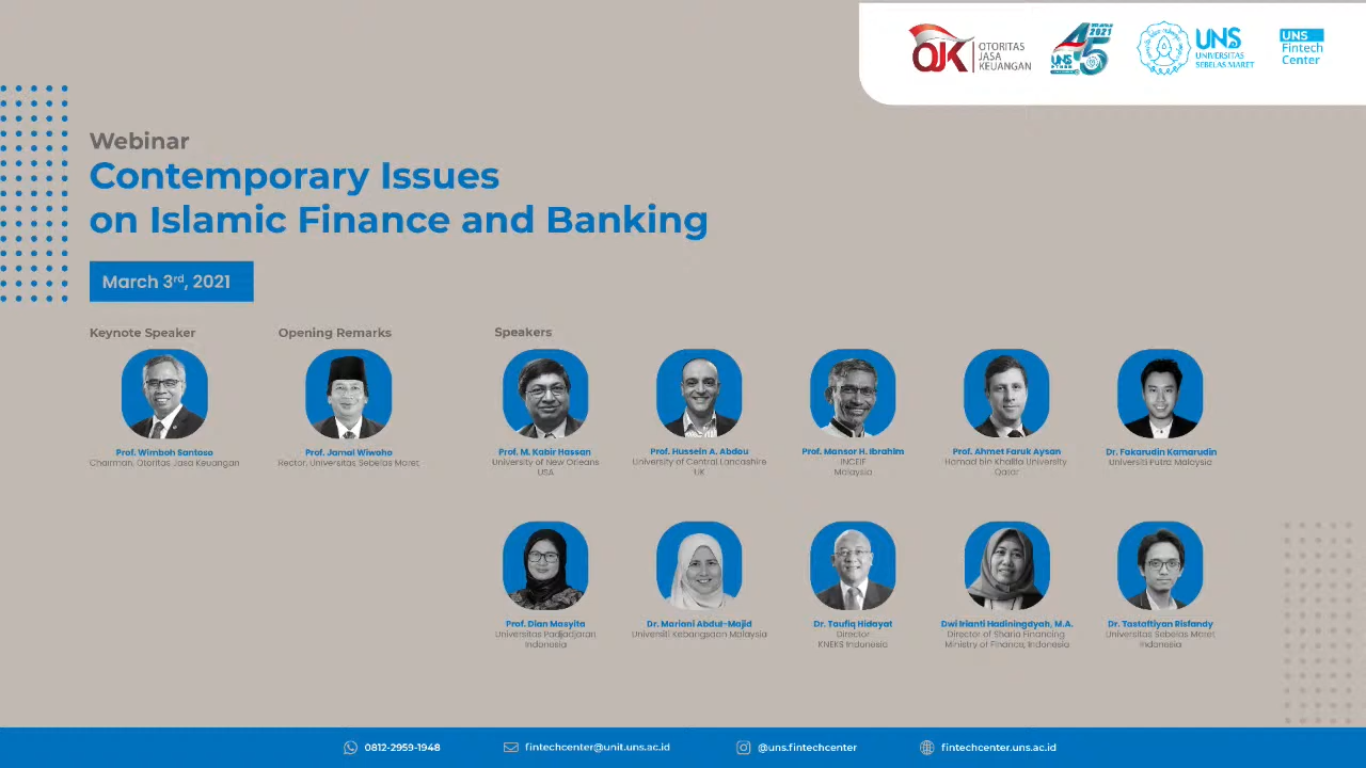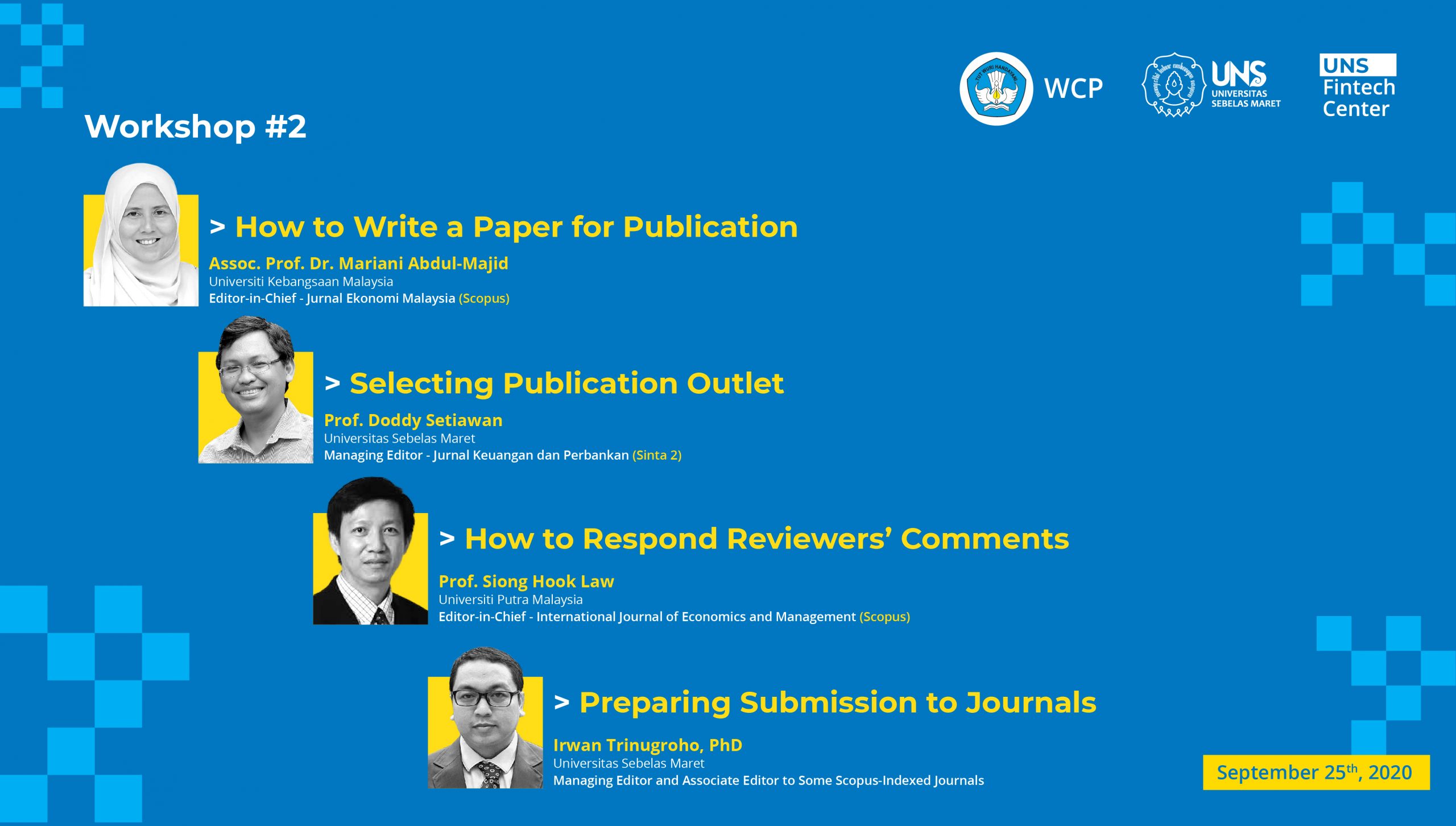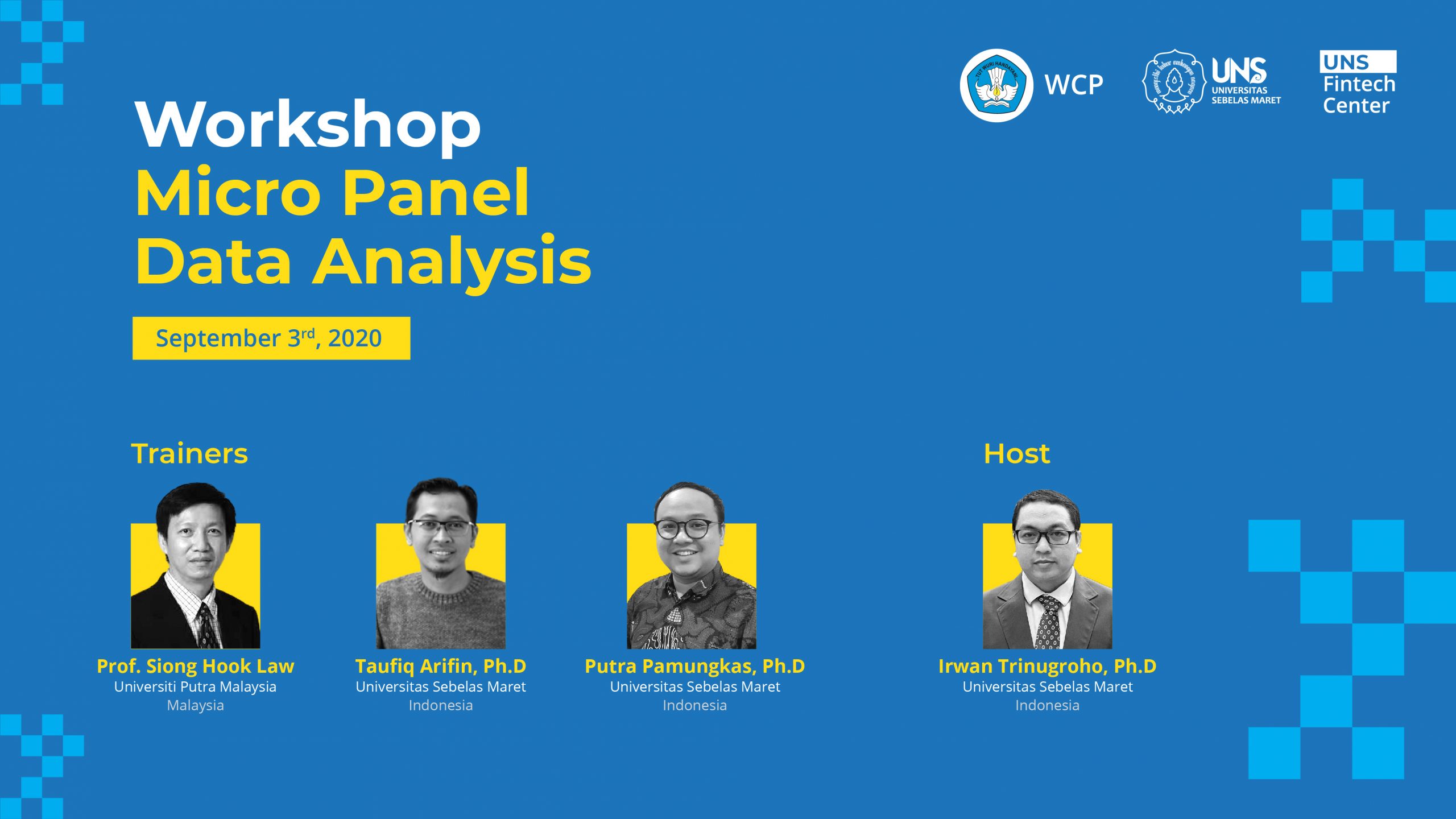Center for Fintech and Banking, Universitas Sebelas Maret (UNS) Surakarta, or UNS Fintech Center celebrate UNS 45th Anniversary through an international webinar on Contemporary Issues on Islamic Finance and Banking on Wednesday (3/3/2021). Prof. Wimboh Santoso, the Chairman of the Board of Commissioners of the Financial Service Authority (OJK) delivered a keynote speech in the webinar held through the Zoom Cloud Meeting platform. Ten speakers from Indonesian and global universities were invited to the event. These speakers are Prof. M. Kabir Hassan from the University of New Orleans, United States (USA), Prof. Hussein A. Abdou from the University of Central Lancashire, United Kingdom (UK), Prof. Mansor H. Ibrahim from INCEIF (Malaysia), Prof. Ahmet Faruk Aysan from Hamad bin Khalifa University, Qatar, Dr. Dawood Ashraf from Islamic Development Bank, Prof. Dian Masyita from Universitas Padjadjaran, Indonesia, Dr. Mariani Abdul-Majid from Universiti Kebangsaan Malaysia, Dr. Taufiq Hidayat, Director KNEKS, Indonesia, Dwi Irianti Hadiningdyah, M.A., Director of Sharia Financing, Ministry of Finance, Indonesia, and Dr. Tastaftiyan Risfandy (Universitas Sebelas Maret, Indonesia).
UNS Fintech Center Shared Publication Tips in World Class Professor Program Webinar Series
UNS Fintech Center Updates UNS Fintech Center Shared Publication Tips in World Class Professor Program Webinar Series Fintech Update – Center for Fintech and Banking UNS (UNS Fintech Center) held another workshop in World Class Professor (WCP) series program. The current workshop discussed “How to Write a Paper for Publication” held on Friday (25/09/2020) through the Zoom Meeting platform. Three speakers attended the workshop, Assoc. Prof. Dr. Mariani Abdul-Majid (Universiti Kebangsaan Malaysia, Malaysia), Prof. Doddy Setiawan (Universitas Sebelas Maret, Indonesia), and Prof. Siong Hook Law (Universiti Putra Malaya, Malaysia). Agista Prameswari led the event as a moderator. Prof. Dr. Mariani delivered the first material on “How to Write a Paper for Publication” and explained the steps in writing a scientific journal article. Her material focuses on the journal article’s structure and clear plan needed by the writer before writing. “Several journals have a different structure; therefore, it is important (for a writer) to search for the channel they want to select,” Prof. Mariani explained. Prof. Doddy Setiawan followed Prof. Dr. Mariani’s material with a discussion on “Selecting Publication Outlet”. Prof. Doddy explained the essential points in selecting a journal outlet for publication, starting with finding a journal that shares objectives and coverage with the submitted article. Ensuring that article is submitted to the appropriate journal will reduce the probability of desk rejection. Papers should also be prepared following the standard and template provided by the journal to increase publication opportunity. The last speaker, Prof. Siong Hook Law, delivered material on “How to Respond to Reviewer Reports”. He explained the steps that authors can apply in preparing a reply for reviewers, which start with thanking reviewers and editors for the opportunity. “Do not plagiarize because there is Turnitin that can check and see how many percent of plagiarized materials in an article. Try always to paraphrase your sentences,” Prof. Law explained. He also added the steps in revising the manuscript and how an author should send their revised manuscript, and the length of paragraphs and pages of an article. “Normally, an article has 25-28 paragraphs, and each paragraph consists of 16-17 lines, and not exceed 40 pages,” Prof. Law added. After the material presentation, participants have an opportunity to submit questions to the speakers. Participants showed great enthusiasm toward the discussed topic. Fintech Media Team
WCP Series 2: STATA Application in Finance, Banking, and Accounting Research
UNS Fintech Center Updates WCP Series 2: STATA Application in Finance, Banking, and Accounting Research Fintech Update – Center for Fintech and Banking UNS (UNS Fintech Center) held a workshop on “STATA for Various Empirical Studies in Finance, Banking, and Accounting” on Friday (11/09/2020) as a part of the World Class Professor (WCP) Program Series. The workshop was held online through the Zoom Meeting application with three speakers, Prof. Siong Hook Law (Universiti Putra Malaya, Malaysia), Dr. Tastaftiyan Risfandy, Ph.D. (Universitas Sebelas Maret, Indonesia), and Aldy Fariz Achsanta, M. Rech (University of Limoges, France) Dewanti Cahyaningsih M.Rech led the event opened by the Chief of UNS Fintech Center, Dr. Irwan Trinugrogo, Ph.D., as a moderator. In his opening remark, Dr. Irwan Trinugroho mentioned that his workshop is the second in the World Class Professor (WCP) Series held by UNS Fintech Center and hopes that the workshop will benefits participants in using STATA. The first material on “Panel Data Analysis in Banking, Finance, Accounting Workshop: Short Panels (Micro Panels)” was delivered by Prof. Siong Hook Law, who discussed the use of dynamic panel GMM estimator. One of the most significant data analysis problems, Prof. Siong Hook Law explained, is the biased standard error when researchers do not pay close attention to the actual variability of coefficient. “Biased standard error will lead to an incorrect conclusion,” Prof. Siong Hook Law stated. Before concluding his presentation, Prof. Siong Hook Law also shared the data analysis method using STATA and the examples of the commands. Following the first material, Dr. Tastaftiyan Risfandy, Ph.D., delivered the second material on “Hausman-Taylor Regression with STATA” and explained the use of the method. Dr. Tastaftiyan explained the strength of STATA compared to other data analysis software, starting from automatic command to extract data and identifying time-invariant and time-variant variables using the endogenous variable. The last material on “Event Study using STATA” was delivered by Aldy Fariz Achsanta, M.Rech. An event study is a method used to measure the effect of a company’s action, such as debts, mergers, or income announcements. This method can also be applied to examine the relationship between stock price and unexpected events. At the end of his explanation, Aldy shared a step-by-step process in conducting an event study using STATA. Participants showed their enthusiasm by submitting questions for speakers after speakers delivered all materials. Fintech Media Team
Micro Panel Data Analysis with Prof. Siong Hook Law
UNS Fintech Center Updates Micro Panel Data Analysis with Prof. Siong Hook Law Fintech Update – Center for Fintech and Banking UNS (UNS Fintech Center) held a workshop on “Micro Panel Data Analysis” on Thursday (03/09/2020). The online workshop was held through the Zoom Meeting application with materials from Prof. Siong Hook Law (Universiti Putra Malaya, Malaysia); Dr. Taufiq Arifin, Ph.D (Universitas Sebelas Maret, Indonesia); Dr. Putra Pamungkas, Ph.D (Universitas Sebelas Maret, Indonesia) and was led by Yoshia Christian Mahulete as moderator. In his opening remark, Dr. Irwan Trinugroho, Ph.D., the Chief of UNS Fintech Center, mentioned that this workshop is a program to develop UNS Fintech Center through the World Class Professor (WCP) Program. He hopes that the workshop will provide complete knowledge for researchers on the application of panel data in their studies. Prof. Siong Hook Law delivered the first material on the “Dynamic Panel Data”, which explains short panel data in Dynamic Panel Modeling. Prof. Siong Hook Law explained that short panel data has two data types, cross-section (N) and time series (T). A cross-section is substantial data recorded at one time. In contrast, time series is a data of a variable recorded over a certain period, usually in three to ten years. Economic and financial research often uses cross-section data instead of time series data (N > T). As the second speaker, Dr. Taufiq Arifin delivered material on “Political connections as a double-edged sword: An Examination of helping-and grabbing hand hypothesis”. In his material, Dr. Taufiq Arifin explained the effect of political connections, transactional and relational connections, on a firm. Transactional connection is a collaboration that ends once a particular objective was achieved (short term), while the relational connection is a long-term relationship due to the similarity in ideology. Further, Dr. Taufiq explained that a firm’s characteristics also affect the firm’s cost of debt, which affects the firm’s propensity to be politically connected. Firms with transactional political connection have lower cost of debts than other non-politically connected firms with similar characteristics. “(However), firms with political connection need to pay higher tax than non-politically connected firms,” he concluded. The last material on “Panel Data Application” was delivered by the third speaker, Dr. Putra Pamungkas, Ph.D., who explained the implementation of three-level panel data, provincial-level data, bank-level data, and country-level data in research. He also provided examples of studies that utilized panel data in their analysis. The international workshop was concluded with a questions and answers session between participants and speakers. Fintech Media Team




